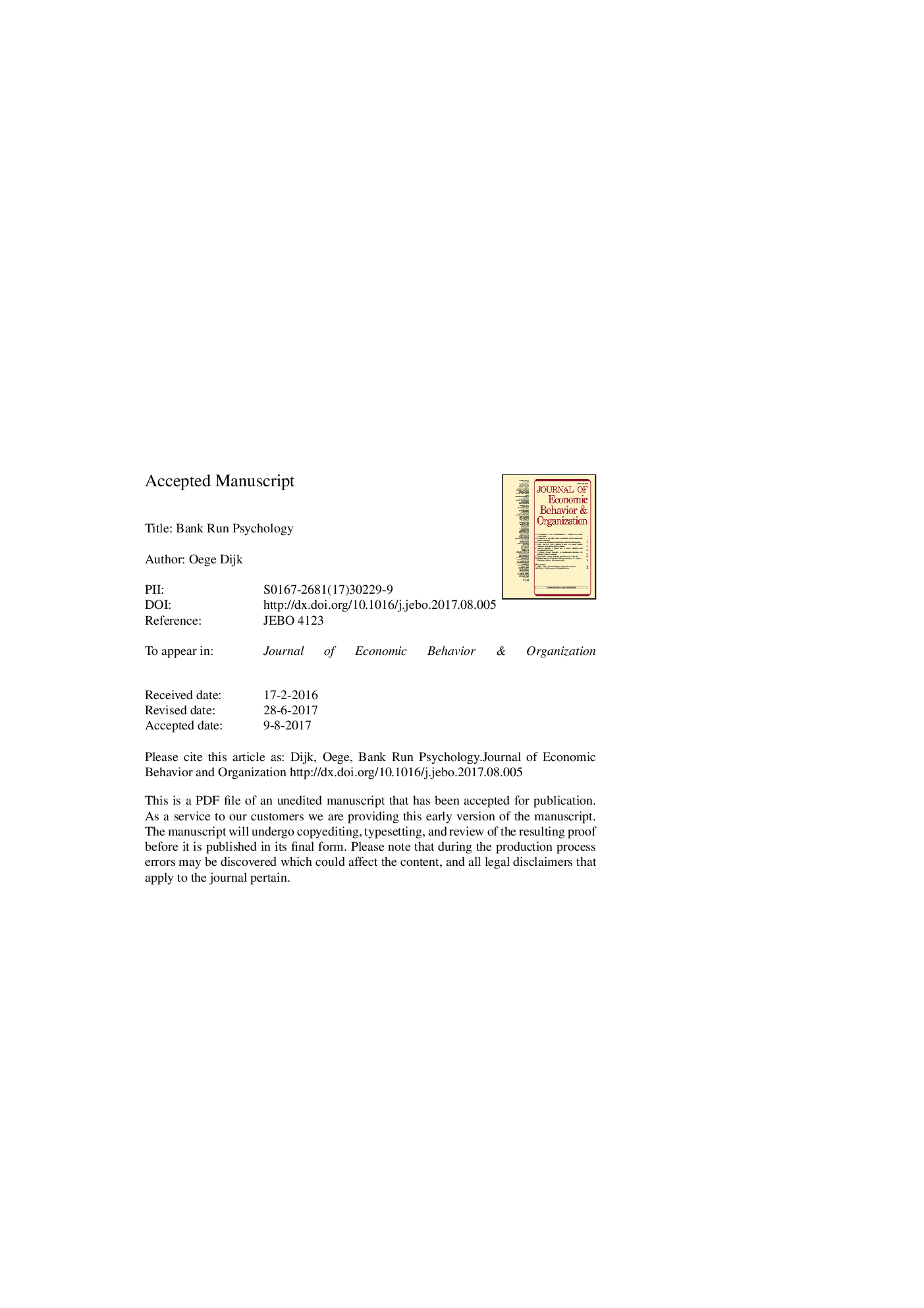| Article ID | Journal | Published Year | Pages | File Type |
|---|---|---|---|---|
| 5034381 | Journal of Economic Behavior & Organization | 2017 | 24 Pages |
Abstract
Banks are inherently susceptible to panics and bank runs due to the problem of maturity mismatch, resulting in both a stable equilibrium in which the bank survives and an unstable equilibrium in which a bank run occurs. Understanding equilibrium selection in this setting is extremely important for safeguarding financial stability. In this paper one new potential factor that determines whether a bank runs gets triggered or not is experimentally studied, namely the psychological state of the depositor. Prior to participating in an experimental bank run game, subjects are either induced with fear, sadness or happiness using an autobiographical emotion induction task. The findings suggest that the presence of background fear significantly increases the likelihood of withdrawal and a subsequent bank run. In addition women are shown to be significantly more likely to withdraw then men, but only in the fear induction treatment.
Related Topics
Social Sciences and Humanities
Economics, Econometrics and Finance
Economics and Econometrics
Authors
Oege Dijk,
